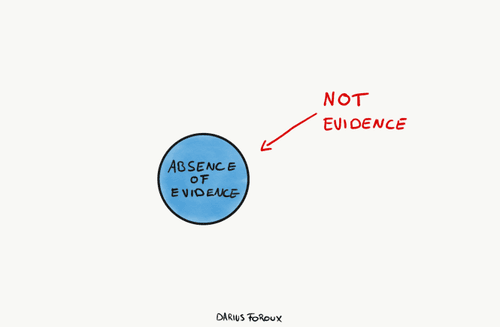Why 'Science-Backed' Advice Is Not Always Better
Curated from: dariusforoux.com
Ideas, facts & insights covering these topics:
6 ideas
·4.13K reads
17
1
Explore the World's Best Ideas
Join today and uncover 100+ curated journeys from 50+ topics. Unlock access to our mobile app with extensive features.
When Studies Are Untrustworthy
Many layers of uncertainty along with thinking errors of scientists (blind spots) make the research or evidence untrustworthy about 42 percent of the time, according to a study.
Many studies lack validity, but researchers already being involved in the studies develop ‘learned helplessness’ and start believing in evidence even though there is none. A lack of evidence to prove the contrary is not evidence to support the theory.
138
945 reads
Advice For Reading Scientific Studies
When we read scientific studies, it helps to keep in mind the following:
- Scientists are prone to error just like everyone else.
- Single source claims are dubious.
- There is a lot we don’t know.
- We should not be biased towards a particular outcome.
- Independent tests of the findings can be done if possible.
- Proof of something does not mean it is true, and a lack of proof does not mean it is false.
180
645 reads
Studies on The Zeigarnik Effect
The Zeigarnik Effect states that we remember unfinished and incomplete tasks much better than completed tasks. Things remain in our mind due to their being incomplete.
There are several studies that have failed to replicate Zeigarnik’s experiment. But this does not mean the theory is false. It means the concept might be true for some people, but not all people.
158
647 reads
Accuracy of Psychological Experiments
It is a good idea to remain critical as most psychological experiments are situational and may not stand the test of time.
Certain ideas that claim scientific evidence like the 10,000 hour rule or Grit, study a specific group of people, and are not universal theories.
124
504 reads
Universal Truths
There are very few absolutely certain, universal truths in life. We are quick to think a piece of information is 100 percent true if it's presented as a new, groundbreaking idea, making us have a lightbulb moment.
Apart from basic math, which is a universal truth, very few truths are found in our lifetime that resonate with us for decades.
140
594 reads
IDEAS CURATED BY
Robert H.'s ideas are part of this journey:
Learn more about problemsolving with this collection
How to set boundaries to protect your energy
How to cultivate positive energy
Why rest and recovery are important
Related collections
Similar ideas
4 ideas
Want To Make Better Decisions? Do This
dariusforoux.com
4 ideas
Want To Make Better Decisions? Do This - Darius Foroux
dariusforoux.com
Read & Learn
20x Faster
without
deepstash
with
deepstash
with
deepstash
Personalized microlearning
—
100+ Learning Journeys
—
Access to 200,000+ ideas
—
Access to the mobile app
—
Unlimited idea saving
—
—
Unlimited history
—
—
Unlimited listening to ideas
—
—
Downloading & offline access
—
—
Supercharge your mind with one idea per day
Enter your email and spend 1 minute every day to learn something new.
I agree to receive email updates

